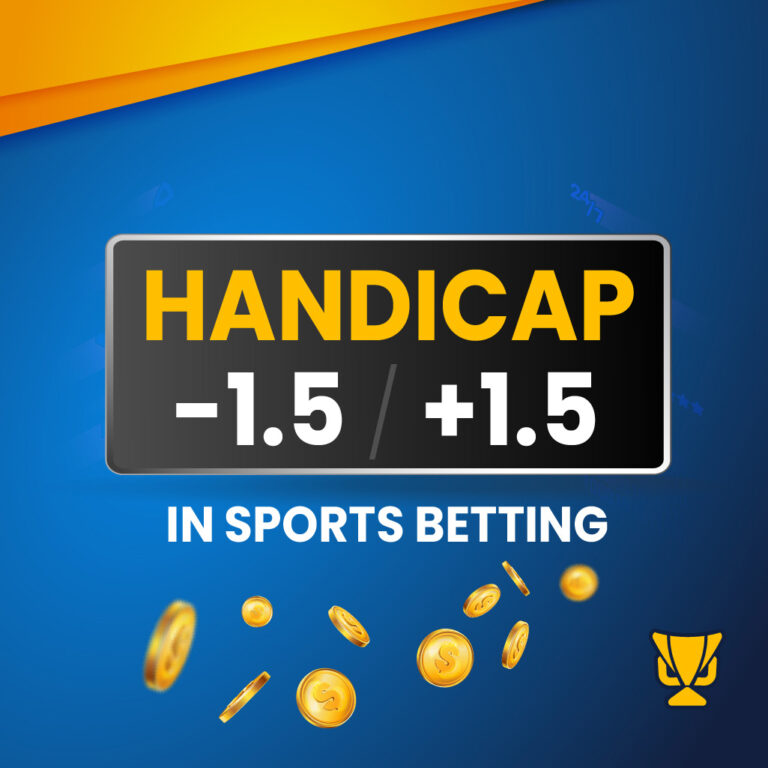Betting on the Outcome in Sportsbooks

One of the first things that comes to mind, when we talk about bookmakers and betting, is to predict who will be the winner of a match. This is not surprising and it justifies the fact that the so-called Outcome bets are, in most of the cases, the most popular bets, irrespective of the sport. Moreover, the fact that they are very simple and straightforward further boosts their popularity especially amongst novice betting players, who attempt to make their first predictions on them.
There is no requirement for special knowledge or learning new concepts and terms when it comes to outcome betting. In most sports including football, basketball and hockey, there are three possible outcomes, which are presented in the bookmakers’ lists in the following way:
- 1 – home team win;
- X – draw in regular time;
- 2 – away team win.
A match taking place in a team’s country or territory does not necessarily mean that this team is the home team. For example, while the European Football Championship final between England and Italy was held at the Wembley Stadium in London, the Italians were formally the hosts of the game.
So, in a bookmaker’s line “1 (3.22) X (2.95) 2 (2.62)” betting on the first team with a coefficient of 3.22 meant betting on Italy’s victory in the regular time, whereas betting on the second team with a coefficient of 2.62 meant betting on England’s victory in the regular time.
In some sports, like tennis or volleyball, there is no draw in the outcome. In such cases, bookmakers offer only two possible outcomes for betting – the home team’s victory or the guests’ victory. In other sports, like football, a draw in the regular time can lead to overtime and/or penalties. In this case, bookmakers offer two options to clarify the outcome with different odds: the first option is 1X2, which refers to the regular time and the second option is 12, which refers to the entire match (including overtime and/or penalties). The odds in the second option will be lower compared to the first, classic outcome bet.
This should be considered when betting in hockey – if there is no indication of other specifications, the bets on the outcome are concerning only the regular time. If you want to play it safe and reduce the risk, then you can always bet on the winner of the whole game. Such bets are usually found in bookmakers’ list just below the classic 1X2 line and they are termed as “Final Win” or “Overtime (DW) and Shoutout (B) Win”.
Let’s see an example. A fan wagers on “CSKA’s final victory” in the KHL match between CSKA and SKA, as he wants to play it rather safe. The match ends with the team from Moscow winning 2-0 and so the bet is won. But the win is smaller, because the odds for the final victory (for the whole match) are always lower than the odds for the victory in the match’s regular time.
Double outcome betting
Bookmakers offer another very interesting and simple outcome bet, the double outcome (or double chance). Here you have the chance to combine two bets on the outcome in the regular time of a match. There are three available bets:
- 1X – host team’s victory or draw in the regular time (also known as “the first team will not lose”);
- 12 – home team’s or away team’s victory in the regular time, no draw;
- 2X – away team’s victory or draw in the regular time (also known as “the second team will not lose”).
Such a rate is relevant when it is likely that an outsider can take points away from the favorite, but other than that it is rarely used, because the odds are lower – for example, the odds of 1X will be lower compared to the odds of the home team’s victory in the regular time.
Let’s see an example. A fan wagers on 2X in the Russian Premier League Championship game between CSKA Moscow and Ural, believing that it will be a rather difficult match for CSKA. The match ends in a 2-2 score and the bet is won, because 2X meant that either Ural should win or the match should end in a draw in the regular time.
The outcome based on the n-th number of minutes / half played
Outcome bets are not confined to the entire match or the regular time of a match. There can be outcome bets, for example, for the first or second half, which are generally equally popular, especially since there are some teams that are far more active and effective in the first half, but fizzle out in the second half. And then again, there are also some teams that start rather slowly, with hesitance, but then as the match progresses adopt a more aggressive tactic. There are readily available statistics for such issues, so you can read and analyze before making a bet.
One other type of outcome bets are the ones concerning a specific time period in a match. Such a bet is termed as “Intermediate outcome” or “Outcome per minute played”. Often, there are several time intervals offered by bookmakers. For example in football these can be: “From the 1st to the 15th minute” or “From the 75th to the 90th minute”. Here, you need to predict the winner of the specific match segment indicated, regardless of whether at the end of the match there is another winner.
Let’s see an example. A fan of Barcelona knows that his team is often ineffective in the first half against outsiders, but in the end of the second half the team gets tougher and scores the winning goal. So, he wagers on “Outcome 75-90 minutes – W2” in the Spanish Championship match between Eibar and Barcelona and expects his team to be stronger in this segment of the game. The match ended with Barcelona’s victory 0-1, when Antoine Griezmann scored the only goal in the 81st minute. So, the bet was won as Barcelona won in the period from the 75th to the 90th minute.
Things to consider when betting on the outcome
While everything appears to be quite simple – all it takes is you to predict the outcome of the match, place a bet and either win or lose, in reality it is more complicated. Bookmakers use sophisticated systems to analyze matches and for this reason the odds in the majority of cases correspond to each situation.
The odds for the favorites are usually quite low, but this does not mean a guaranteed victory. Some try to increase the odds by using “express” bets on the favorites, but as mentioned before, there can be unexpected outcomes occasionally. For example, while nobody expected the Czech Republic to defeat the Netherlands in the 1/ 8 European Championship finals, the team did so to the surprise of everyone.
And there is also another extreme, where one tries constantly to predict which outsider will make a difference and beat the favorite. But if everything was that simple, then bookmakers would have gone bankrupt a long time ago. You need to place bets carefully and wisely, especially as there is a lot of available information that you can use to analyze and bet accordingly both on outcome bets and other types of bets.



